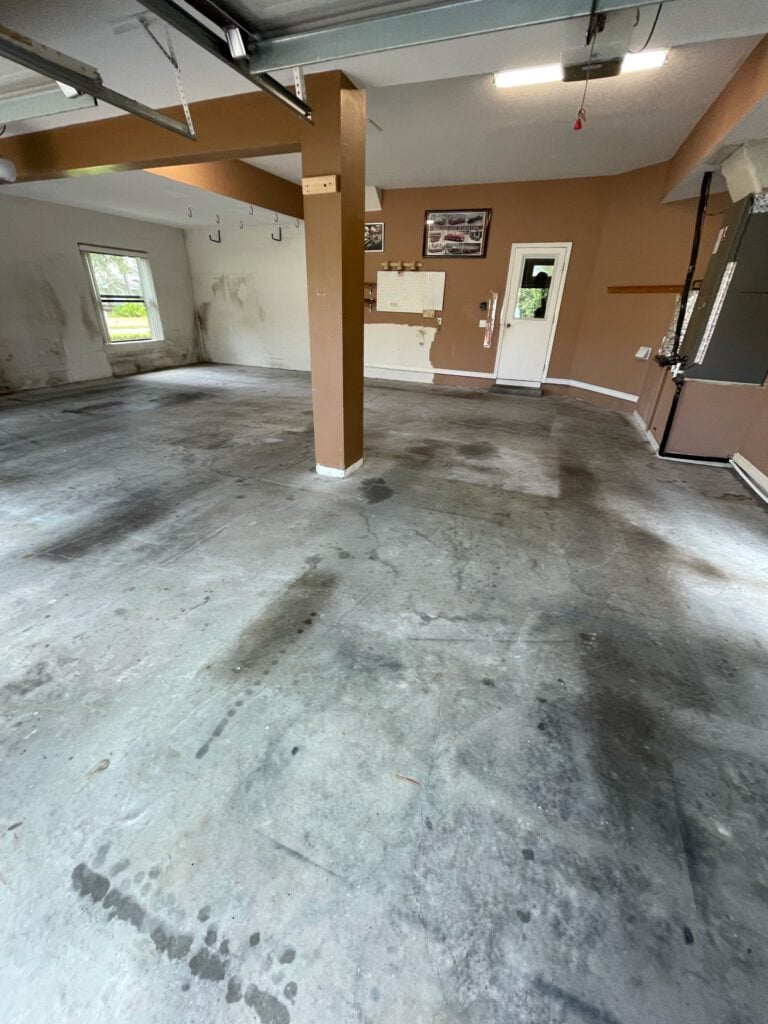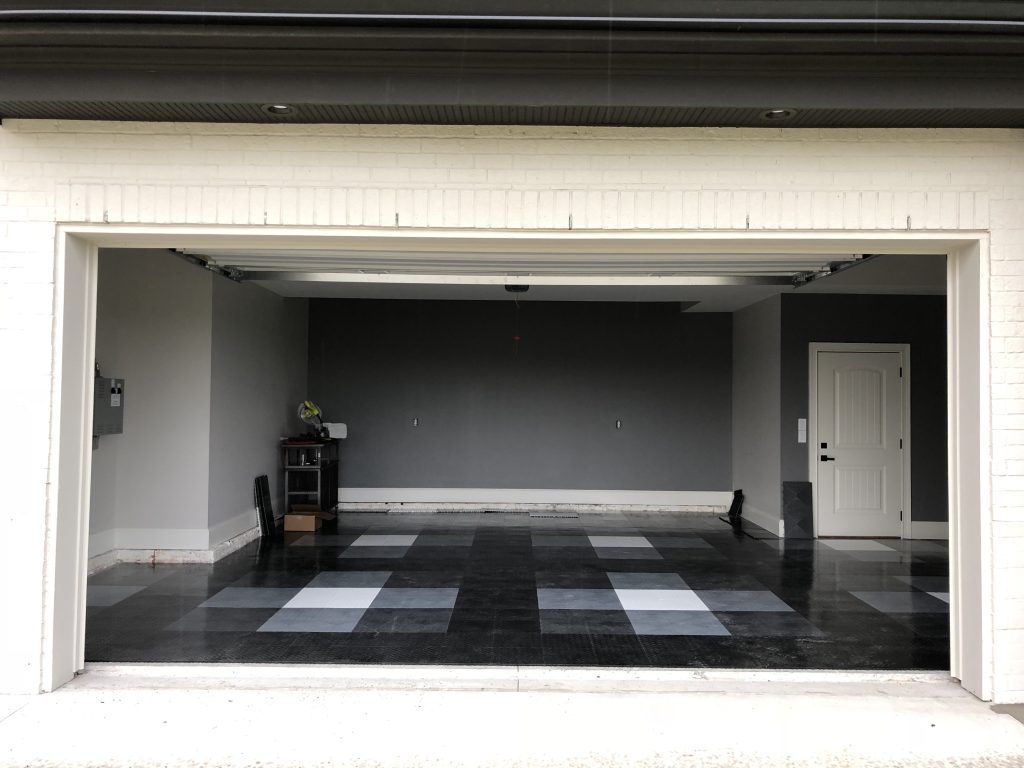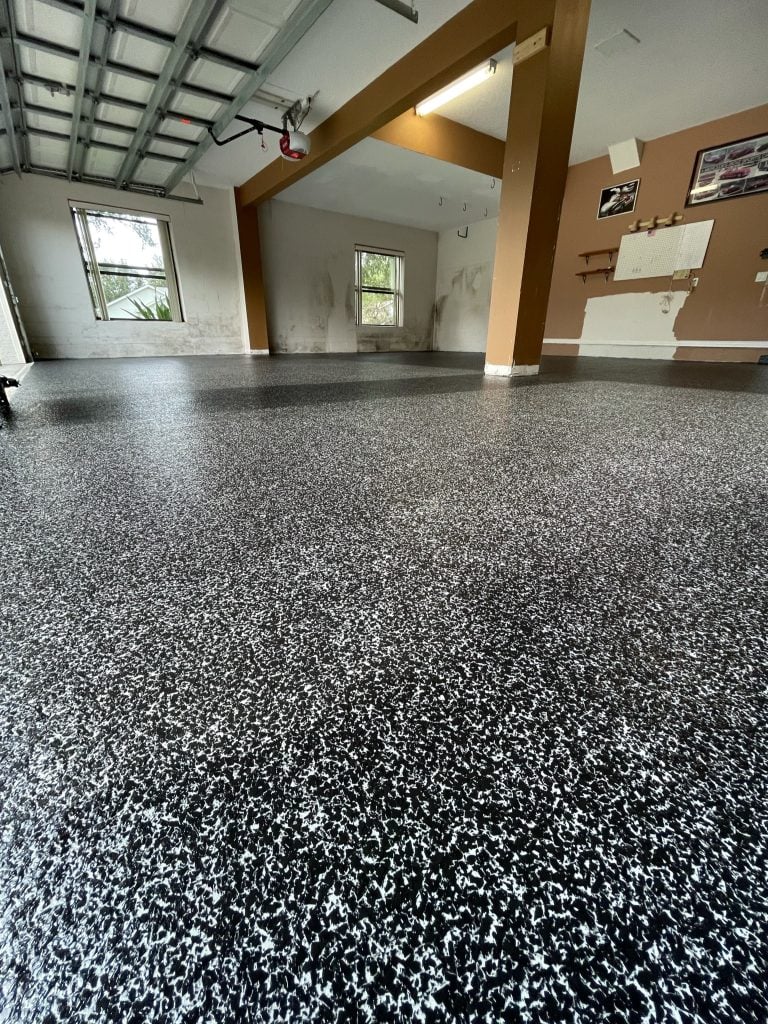Your residential & commercial polyaspartic/Polyurea floor coating leader in Tennessee, Georgia & Florida.
Get a Free QuoteThe standard garage floor is a plain concrete slab. While the floor itself is functional, the concrete can erode over time if not properly sealed or taken care of. This can cause some hassle in the long term if left alone. If you want a durable garage floor that lasts a long time, consider different types of garage flooring. There are two potential options for your garage floors: covering and coating.

Covering your concrete floor requires little to no prep work aside from clearing out the area. These floor coverings are semi-permanent solutions that are easily removable. These coverings will likely raise the level of the floor a little, so keep that in mind.
Floor tiles are interlocking tiles made of rigid or semi-rigid plastic, rubber, or wood composite. These tiles snap together like a puzzle and are easy to install yourself. The jigsaw pattern creates an interlocking barrier that offers a waterproof seal. Plastic tiles are some of the most popular and have a broad range of design options. They are super versatile and anti-slip.
The image below is an example of plastic RaceDeck which costs a substantial amount and requires a good deal of installation time, especially if you have added wall dimensions like this garage has. Another issue with this is it is made of plastic, which creates a constant plastic sound when walked on. It also will shift with weight, so be sure to leave at least an inch and a half around the edges so that when a car drives on it it does not bunch. Beyond that, it will require more maintenance than a Titan Garage floor with new tiles, discoloration, and cleaning. Overall, this customer did not like the sound and cheap feeling the plastic gave him when walking on. After two years, he upgraded to a Titan Floor!

Rubber tiles are also popular and frequently used in sporting facilities and kid play areas. Rubber is resilient and comfortable for those who spend a lot of time in the garage. If you kneel a lot, your knees will appreciate the extra support.
Floor mats are another simple option and are one of the easiest methods for covering your garage floor. They’re made of rubber or polyvinyl plastic and offer a simple floor covering that can be done in minutes. Floor mats can warp under extreme temperatures, so if you live in a warm climate, floor mats may not be your best option.
Coating your concrete floors is a longer-lasting solution than floor coverings. Some of the most popular choices for floor coating include paint, epoxy, or polyurea coating. Painting your concrete floor can refresh its appearance and give stained garage floors new life.
These floor paints are typically latex or oil-based. These paints have a satin, non-slip finish and are resistant to damage from solvents, salts, and whatever else you may keep in your garage. Just make sure you buy paint that is for concrete floors. Standard house paint will not have the same protective effect. Sometimes these paints are mixed with epoxy, which makes them even more durable.
Epoxy floor coatings are a cost-effective way of coating your garage floors. Many consumers choose epoxy coating for this very reason. The epoxy coating may be cheaper at installation, but it can be more expensive in the long run. It also depends on the type of concrete you have in your garage if you are eligible for epoxy floor coating. An epoxy coating will only work with CSP1 or CSP2 concrete.
If your epoxy flooring is exposed to UV light, it can yellow and break down over time. Epoxy can also take several days to cure, and not everyone has time to wait. Epoxy flooring is not viable for temperature fluctuating climates like Nashville, Tennessee. Your epoxy floors may chip and wear away over time, requiring constant repairs and refinishing.
Polyurea floors are more resistant to UV and are more durable than epoxy floors. Polyurea floors are better for climates with fluctuating temperatures. Polyurea-coated floors are not only more durable but also more flexible than epoxy floors– they can move with the shifting concrete beneath. This means they are less likely to crack and the floors will last a significantly longer period without needing repair.

Titan Flooring uses a mixture of polyurea and polyaspartic to make our floors. The mixture can be used on many different concrete profiles, so there’s no need to worry about floor rejection. Our custom blend keeps foot traffic and vehicles in mind. Titan Floors are exceptionally durable, and we’re confident that they won’t crack or warp over time.
Unlike Epoxy, our floors fully cure in up to 24 hours, which means no inconvenient wait time. One of the best parts of our floors is the lifetime warranty that transfers even if the homeownership does. Read more about the difference between our floors, epoxy floors, and polyurea floors on our blog.
Titan Floors offer plenty of different colors and finishes to choose from. There’s no need to worry about the health of your floors when you have Titan Floors. Call today for a quote!